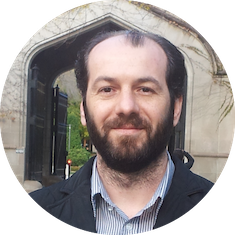Eido's research focuses on the Qur'an in late antiquity, Hadīth Studies, and Sufism.
Issam Eido is a former Visiting Professor of Islamic Studies and Arabic from the University of Chicago Divinity School (2013-2015). Eido's research focuses on the Qur'an in late antiquity, Hadīth Studies, Sufism. His teaching interests focus on Modern and Classical Arabic language, Arabic Literature, Islamic Studies, and Qur'ānic Arabic. Prior to the Syrian uprising, Eido served as a lecturer in the faculty of Islamic Studies in the Department of Qur'an and Hadīth Studies at the University of Damascus. His doctoral work, 'Early Hadīth Scholars and their Criteria of Hadīth Criticism,' presented a new understanding of the criteria used by Muslim scholars in accepting or rejecting traditions attributed to Muhammad and the transformations of that criteria from the classical to the modern period. While undertaking his doctoral work in the mid-2000s, Eido solidified an international reputation among Islamic and Middle Eastern Studies experts across disciplines by working closely with visiting researchers and Fulbright scholars in Damascus through and Arabic and Islamic studies institute he founded, named the Dalalah Institute. In 2012, he was a Fellow of the "Europe in the Middle East/Middle East in Europe" Research program at the Forum Transregionale Studien in Berlin (affiliated with Corpus Coranicum). Currently, his research focuses on the question of Authenticity and the shaping of authoritative Islamic texts among Muslim scholars in the Islamic formative period.





.png)




